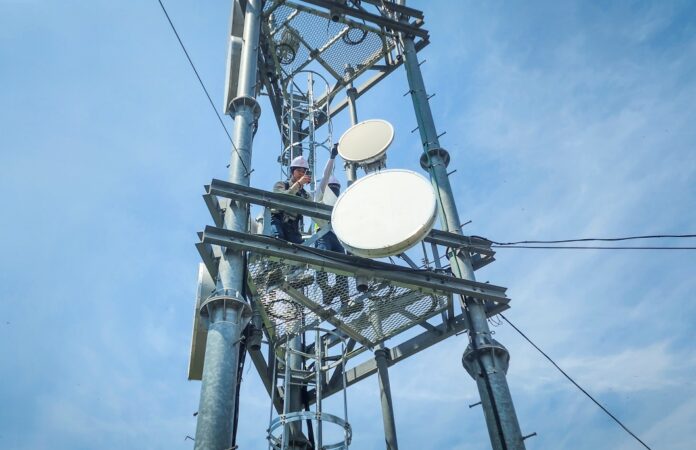SK Telecom plans to increase the scope of its use of microwave bands in the islands off South Korea’s coast
Korean carrier SK Telecom unveiled frequency-combining technology using the 11 GHz and 80 GHz spectrum bands with the aim of delivering high-capacity microwave communication to 5G networks on islands off South Korea’s coast.
Microwave communication is a technology that effectively transmits a large amount of data between two points using wireless communication technology. SK Telecom noted that microwave communication is mainly used as a substitute for wired networks in areas where it is difficult to lay optical cables, such as islands and mountains.
The carrier explained that the existing microwave communication frequency, 11 GHz, is capable of long-distance communication but was not a good option to increase the network’s capacity to match 5G. The company decided to combine the two frequencies with Super Dual Band (SDB) technology to take advantage of the benefits of each frequency and enable long-distance transmission of large amounts of data—up to 10 kilometers, according to the carrier.
SK Telecom also said it is testing a 5G network between Sanyang and Hakrimdo in Tongyeong by applying SDB technology. The carrier plans to increase the scope of application of the technology to boost the network in the islands region in the future.
“Through this SDB development, the stable service of the 5G network has been further strengthened,” said Lee Jong-hoon, SK Telecom’s infrastructure engineering manager.
SK Telecom ended the first quarter of the year with a total of 14.14 million subscribers in the 5G segment, up 5.6% from 13.4 million in the previous quarter. During 2022, SK Telecom recorded a net addition of 3.5 million 5G customers.
At the end of the first quarter, the operator’s 5G subscribers accounted for 61% of its overall handset subscribers, up from 58% at the end of December 2022.
Earlier this month, South Korea’s ICT ministry canceled a license owned SK Telecom to offer 5G services via 28 GHz spectrum, citing a lack of investment.
SK Telecom had been given the right to use the 28 GHz band in 2018 and was required to install a total of 15,000 units of network equipment by May this year. However, SK Telecom had only installed only 1,650 units of 28 GHz equipment.
At the beginning of January, the Korean government effectively cancelled the spectrum licenses in the 28 GHz band that had been previously allocated to local operators for 5G deployments, due to the lack of investment and missed rollout requirements.
As a result, local operators KT and LG Uplus lost the right to use the 28 GHz frequencies they had won in a spectrum auction in 2018. Meanwhile, SK Telecom, had its use time of the 28 GHz spectrum reduced by six months. At that time, the government said that the telco will also lose the right to use the spectrum completely if it failed to deploy 15,000 radio stations that use the 28 GHz spectrum by the end of May 2023.

